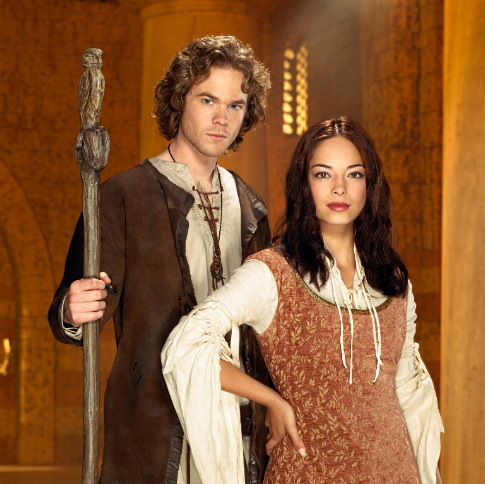If you haven’t read this yet, why on earth not? And if you have yet somehow didn’t like it, seriously: why on earth not?
![Crossroads of Canopy: Book One in the Titan's Forest Trilogy by [Dyer, Thoraiya]](https://images-na.ssl-images-amazon.com/images/I/51KoRQ--kTL.jpg) |
| Dyer, Thoraiya. Crossroads of Canopy. Macmillan, 2017. |
You can buy it here,
and by the time you’re done reading this review, you’ll want to!
Despite being the target of polarizing reviews (some of
which, I am convinced, are consciously or unconsciously motivated by dislike
for precisely what makes it unique, namely the unconventional heroine), this
story is awesome. Its awesomeness stems partly from its world-building (the
unique forest world, consisting of the mysterious Floor, the savage Understory,
and the elitist Canopy, with the people and creatures from each a strange and
fascinating mix of familiar and alien traits) and partly, perhaps mostly, from
its main character. Here’s why heroine Unar is the best female protagonist—and indeed,
one of the best protagonists of any biological sex or gender—in years.
Her masculine-without-being-stereotypically-tomboyish femininity:
Unlike the squeaky clean, often virginal heroines of recent
popular fantasy and sci fi literature (I’m looking at you, Bella Swan!), Unar
has desires…and acts on them. In fact, her coming of age reminded me quite
strongly of Tenar’s awakening in Ursula Le Guin’s immortal The Tombs of Atuan. I wonder if Unar’s name might have been
inspired by that rather similar story of social and sexual repression, out of
which, like two glorious butterflies, these two heroines irrepressibly burst? Unar
is not a model of demure femininity; instead, she’s an interesting mix of
feminine and (what we might identify as) prototypically masculine traits,
especially her tremendous ambition and her hunger for power, qualities that stay-in-the-kitchen
traditionalists would doubtless call ‘unfeminine’. Given men’s dismal track
record of monopolizing power, controlling female sexuality and indulging their
ambitions throughout history (both in the world of Canopy and our own), ‘unfeminine’
girl power doesn’t sound so bad to me.
 |
| Thanks for taking a giant dump on the Earthsea cycle, creators of this crappy 2004 miniseries! |
Her moral ambiguity:
Generally, heroines are presented as always doing the right
thing, so even when, e.g., Katniss Everdeen shoots a certain character in the
Hunger Games trilogy, the reader certainly is not meant to question Katniss’s
essential goodness. That is, female anti-heroes, true anti-hero(ine)
protagonists (not just pure-hearted women forced by cruel circumstances to do
bad things, or black-hearted ‘fallen woman’ villains) are very rare, as though
even most authors can scarcely conceive of a woman anywhere in the ethical
spectrum between the polar extremes of pure goodness and total evil. Unar,
however, is decidedly a mixed bag, ethically, and as the reader continues to
cheer her on, we too become complicit in some of her darker deeds. I’m not
talking about when she’s being mind-controlled, her magic used against her will
to harm others; that’s just standard victim stuff. I’m talking about when she does have control: often she acts
bravely, and sometimes altruistically, but also occasionally acts out of pure
selfishness. Gosh, this mass of contradictions almost sounds like a real person—a
lot more than most fairytale heroines, to be sure!
Her overall awesomeness:
Unar is betrayed many times, in many forms, by family,
friends and allies, but she is like a juggernaut—nothing can keep her down. She’s
also almost unique, given her privileged position, in being quick to recognize
the worth of people in a lower social class than her; she both uses their
talents for her own ends and, sometimes, uses her own vast powers to help them.
She is essentially the only person in her highly and literally stratified world
that is able to travel between these distinct layers, combining the best parts
of both Canopy and Understory. I can hardly wait until we get a sequel and she
begins exploring the still dark and mysterious world of Floor!
The fact that there’s no ‘happily ever after’ in sight:
Usually, books about girls (or boys, for that matter) bring
everything to a cathartic and suitably romantic conclusion; the heroine finds
and wins the man of her dreams, etc., etc. But Unar has no such too-pat ending
waiting for her. Even if no sequel is ever written (though that would be a
terrible shame!), Unar’s story is complete in its incompleteness. The worth of
a young woman, the sum total of her life, cannot be expressed in hetero(or
homo)sexual union—nor is her value necessarily tied to her youth. This story
emphasizes that, by focusing more on the life-cycle of the oppressed women of
this fictional world, introducing not only Maidens, but also Mothers and Crones,
and insisting we the readers take notice of their valuable contributions.
Fittingly, at the end Unar finds herself decisively deprived—by her own actions—of
the chance to settle down and enjoy a quiet, happy life, and given her morally
questionable deeds, her inability to resume her old life, while in a sense a
cruel fate, is not a surprising one. It’s only surprising if we the readers
have been fed a diet of happily ever afters. I for one am looking forward to
future stories about Unar’s fascinating exploits, as something tells me her
story is far from over.
The Math:
Objective Assessment: 6/10
Bonuses: +1 for making such a morally complex, endlessly
fascinating heroine as Unar
+1
for quite creative bout of world-building
Penalties: None!
Nerd coefficient: 8/10 “Totally sweet!”
See more about our scoring system (under which 8/10 is quite
rare!) here.
This message brought to you by Zhaoyun, aficionado of
fictional worlds and devotee of earth-shattering heroines like Unar, and
reviewer for Nerds of a Feather since ancient times (2013).